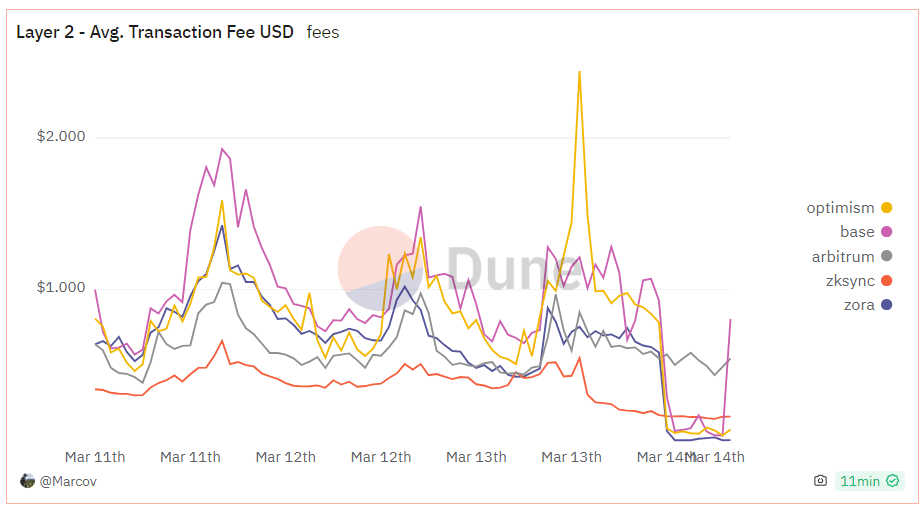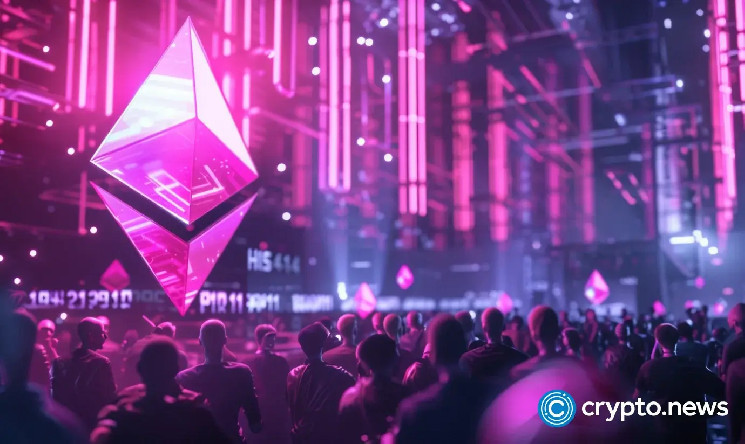Dencun, the latest upgrade to grace the Ethereum network, could deliver on its vision of tackling high fees as data confirms a significant drop in average transaction fees on Ethereum Layer-2 (L2) networks.
After a long period of anticipation, the Dencun upgrade finally went live on the Ethereum mainnet on March 13, as confirmed by Ethereum Foundation Protocol Support Tim Beiko.
According to data from Dune, L2 protocols that leverage blob transactions have experienced significant drops in transaction fees, with platforms like Base, Optimism, and Arbitrum seeing some of the largest drops shortly after Dencun went live.

Tier 2 average transaction costs – March 14 | Source: Dune
As of March 11, Optimism had an average transaction fee of $1,587, while Base recorded a figure of $1,927, data from Dune confirms. However, these values have fallen significantly, with Optimism and Base both recording average transaction fees of $0.035 at the time of reporting.
You might also like: Bitcoin’s bullish momentum continues despite miner sell-off, says CryptoQuant CEO
This change represents a massive 97.7% drop in Optimism fees and a 98.8% drop in Base’s value. Zora also posted an impressive decline, as fees fell 99% from $1,423 on March 11 to $0.003 at the time of writing, according to Dune data.
Starknet saw similar declines, with the average cost for in-app swaps on Argent It is worth mentioning that the Starknet Foundation also promised to introduce a tariff reduction mechanism in parallel with Dencun.
For the uninitiated, the Dencun upgrade seamlessly merges the “Cancun” and “Deneb” updates. It aligns with Ethereum’s roadmap known as “The Surge,” with a primary focus on strengthening the scalability of the network.
The upgrade introduces a new concept called “proto-dankharding” (EIP-4844), which aims to refine gas rates and improve data management for layer 2 networks and rollups.
Dencun’s ultimate goal is to reduce transaction fees while increasing throughput in the Ethereum ecosystem. In particular, this goal could be achieved through a type of transaction called ‘shard blob transactions’, introduced with EIP-4844.
The Ethereum ecosystem has witnessed the use of over 4,000 blobs so far. While other layer 2 protocols have quickly implemented these blob transactions, Arbitrum plans to join the party with the upcoming launch of its ArbOS hypervisor. Meanwhile, Blast saw an hour of downtime due to issues with Dencun. Read more: Bitcoin reaches a new ATH, accumulation increases

